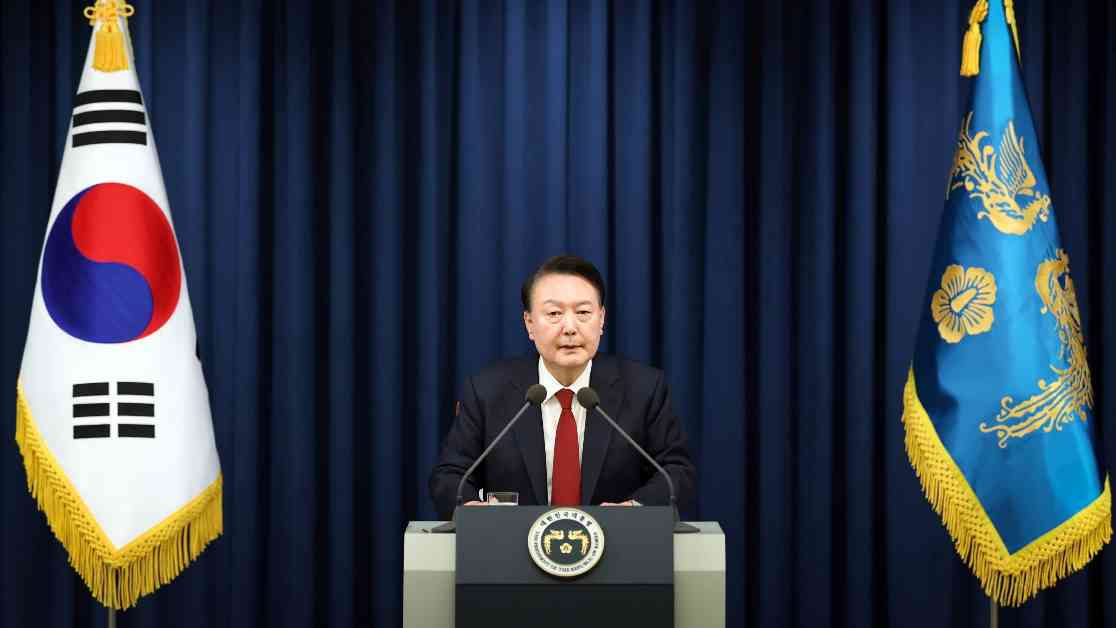South Korean Parliament Votes Against Imposing Martial Law
In a historic vote today, the South Korean Parliament has decided against imposing martial law in the country. The decision comes after weeks of intense debate and speculation about the government’s response to recent unrest and protests.
What Happened?
The Parliament, consisting of 300 members, convened earlier this morning to discuss the possibility of declaring martial law in response to the escalating tensions in the country. The proposal was put forward by the ruling party, citing concerns about national security and the need to restore order. However, after hours of heated discussions and deliberations, the majority of MPs voted against the motion, opting instead for a more diplomatic approach to the crisis.
Why is This Significant?
This decision marks a significant moment in South Korea’s history, as the country has a complex relationship with martial law, given its authoritarian past. The debate over whether to impose such drastic measures has sparked widespread public interest and concern, with many fearing a return to the oppressive tactics of the past. The Parliament’s rejection of martial law signals a commitment to upholding democratic values and respecting the rights of its citizens, even in times of turmoil.
Expert Analysis
Political analysts and experts have praised the Parliament’s decision, noting that it demonstrates a commitment to resolving conflicts through dialogue and negotiation rather than resorting to force. Professor Lee Soo-jin, a prominent scholar of Korean politics, stated, “This vote sends a strong message that South Korea is dedicated to upholding democratic principles and protecting the rights of its people. It shows that the government is willing to listen to the voices of its citizens and address their concerns in a peaceful manner.”
What’s Next?
As the country moves forward from this pivotal moment, all eyes will be on the government to see how they navigate the ongoing challenges and work towards finding a peaceful resolution to the current crisis. The decision to reject martial law has set a precedent for future responses to unrest, emphasizing the importance of dialogue and compromise in times of uncertainty. South Korea’s commitment to democracy and civil liberties remains steadfast, as the nation continues to strive for unity and progress in the face of adversity.
As a Korean-American, I understand the complexities of balancing security concerns with the preservation of democratic values. The decision to reject martial law reflects a deep-seated commitment to upholding the rights and freedoms that so many have fought for in South Korea’s turbulent history. It is heartening to see the government prioritize dialogue and negotiation over coercion, signaling a hopeful path towards a peaceful resolution for all involved.






















